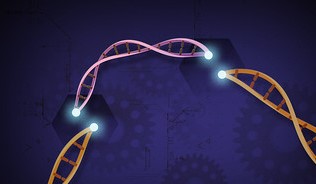
Replication-competent HIV-1 DNA – the virus responsible for AIDS – has been eliminated from the genomes of living animals for the first time.
A US research team used CRISPR-Cas9 and a new therapy called long-acting slow-effective release antiretroviral therapy (LASER ART), a modified drug within nanocrystals that distributes to tissues where HIV is likely to be lying dormant.
Researchers injected mice with human bone marrow in order for them to replicate the human immune system by producing human T cells susceptible to HIV infection. They found LASER ART could suppress HIV replication long enough for CRISPR-Cas9 to completely eliminate viral DNA in around one third of their HIV-infected mice.
According to lead researcher, Professor Kamel Khalili at Temple University, Pennsylvania, the work marks a critical step towards cures for HIV-infected humans.
Professor Khalili said: “The big message of this work is that it takes both CRISPR-Cas9 and virus suppression through a method such as LASER ART, administered together, to produce a cure for HIV infection.
“Our study shows that treatment to suppress HIV replication and gene editing therapy, when given sequentially, can eliminate HIV from cells and organs of infected animals.”
The HIV virus integrates its DNA sequence into the genomes of cells of the immune system. HIV is currently treated with antiretroviral therapy (ART), which takes the form of a combination of drugs.
ART supresses HIV replication but does not eliminate the virus from the body. It is also not a cure and requires life-long use.
The HIV virus lies dormant until ART is stopped, at which point it renews replication, fuelling the development of AIDS. Dr Khalili said his team plan to move to trials in non-human primates and possibly clinical trials in human patients within 2019. If such trials are successful – and manage to navigate potential side effects of genetic mutations caused by CRISPR – this new technique could offer a cure for HIV infection in humans.
The researchers, from Lewis Katz School of Medicine at Temple University and the University of Nebraska Medical Center, had their research findings published in Nature.
Source: Lab News

















